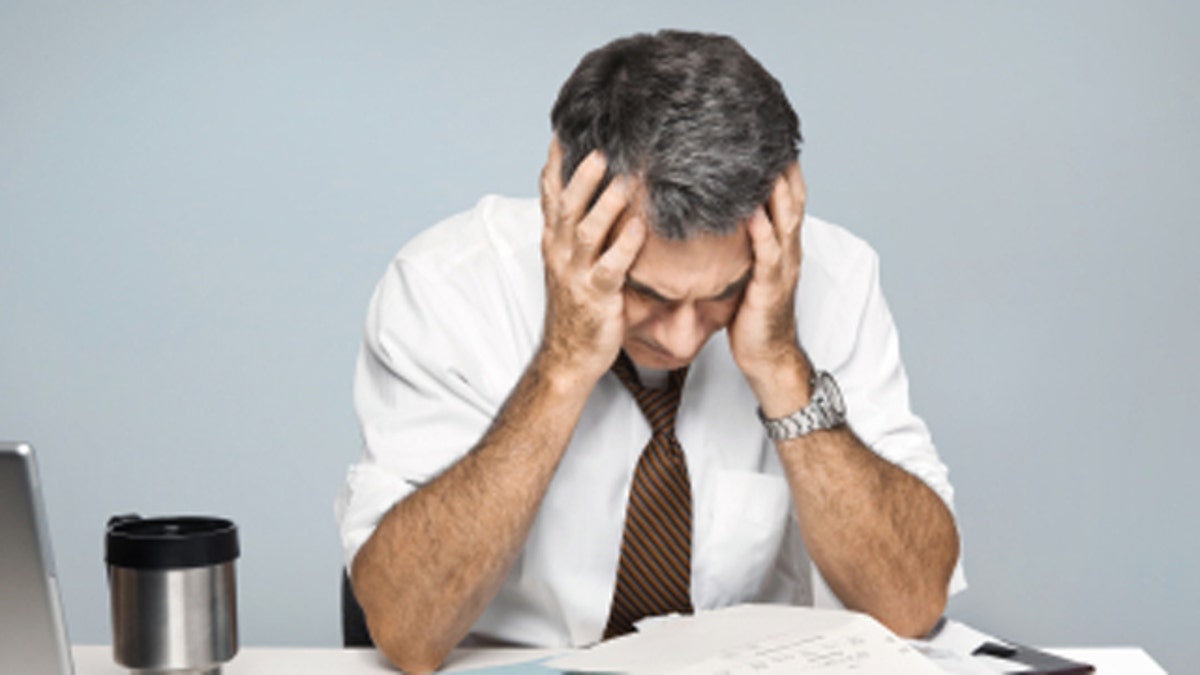
Whether you’re sitting in a cubicle or running your butt off working retail all day, your job no doubt has its fair share of stressful moments. These daily annoyances may not be enough to pose a serious risk to your health, but new research suggests the size of your paycheck is another matter: A UC Davis study found that earning the lowest wages is directly tied to high blood pressure—especially in young women.
The study, published in The European Journal of Public Health, looked at the work and health records from over 5,000 households, focusing specifically on working adults between the ages of 25 and 65 with an income of $2.78 to $77 an hour. The research team used records from the Panel Study of Income Dynamics, a highly regarded database that includes information on employment, income, and hypertension status.
While there was already a known relationship between higher blood pressure and lower socioeconomic status, this study was the first to take a worker’s income into account, finding that young workers and women between the ages of 25 and 44 were at the highest risk of developing hypertension.
“Wages are an important factor for people’s general sense of well-being and self-worth,” said J. Paul Leigh, senior author of the study and professor of public health economics at UC Davis. Feeling crappy about yourself (or worrying about paying the bills) can obviously lead to stress—one factor in high blood pressure, Leigh says. (Do you think you’re underpaid? Learn How to Negotiate a Raise.)
To keep yourself healthy between doctor visits—and paychecks—try these five tips to keep your blood pressure in check.
1. Cut the salt
An easy way to lower your blood pressure is by paying more attention to what you eat. Avoiding processed foods and not consuming more than 2,300 milligrams of sodium a day can help you reduce your risk for hypertension, according to the Mayo Clinic. Start by checking nutritional labels and keeping track of what you eat each day.
New research published in Nutrition, Metabolism & Cardiovascular Diseases found that making the vegetable soup a regular part of your diet can help lower blood pressure by up to 27 percent. The soup’s high levels of carotenes, vitamin C, and polyphenols make it a delicious, heart-friendly meal.
2. Drink alcohol (in moderation)
Drinking alcohol in small amounts can actually lower your blood pressure by a couple of points, but having more than one drink a day can do more harm than good, reports the Mayo Clinic. Having more than the recommended amount of alcohol—or binge drinking by consuming four or more drinks in a row—can cause sudden increases in blood pressure, and can render hypertension medications ineffective.
3. Quit smoking already!
The nicotine in cancer sticks makes you two to six more times likely to suffer a heart attack, according the National Heart, Lung and Blood Institute (NHLBI). Smoking throughout the day also means a continually high blood pressure, damaged blood vessel walls, and expedited hardening of arteries, which could eventually lead to heart disease—not to mention all of the other health problems cigarettes cause. (Has the prospect of packing on pounds deterred you from ditching cigarettes? Learn How to Quit Smoking Without Gaining Weight.)
4. Work out regularly
According to the NHLBI, being overweight doesn’t just increase your risk for hypertension, it also makes you more likely to develop heart disease. As your weight increases, so does your blood pressure—even losing a mere 10 pounds can significantly lower your BP. Staying active and making a conscious effort to engage in even just 30 minutes of moderate physical activity a day—like swimming laps, biking, or gardening—is a great step toward lowering your blood pressure and keeping your weight under control. (Walking counts as working out, too! Learn how you can Walk Your Butt Off!)
5. Check yourself regularly
Hypertension affects about 68 million U.S. adults and costs more than $131 billion each year in medical expenses, according to The Centers for Disease Control and Prevention. “Women may not be aware that they are at risk for hypertension,” said Leigh. While checking blood pressure is a routine part of a checkup, Leigh says after the study’s findings it’s important for people to get their blood pressure checked regularly, instead of waiting until there’s a problem.
